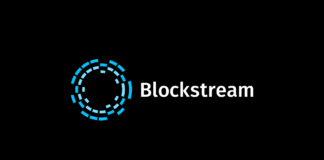The South Korean cryptocurrency market is undergoing a significant regulatory overhaul, with financial authorities poised to reevaluate the listing status of approximately 600 virtual assets. This sweeping crackdown, set to commence in July, aims to enhance compliance and protect investors within the rapidly evolving cryptosphere. The South Korea crypto regulations are part of a broader effort to establish a robust framework for virtual asset regulation in the country.
Regulatory Landscape Shift in South Korea
The Virtual Asset User Protection Act
At the heart of this regulatory transformation lies the impending implementation of the Virtual Asset User Protection Act on July 19th. This comprehensive legislation empowers South Korean financial regulators, such as the Financial Services Commission (FSC), to establish a robust framework for virtual asset transactions, including rigorous listing and delisting criteria for cryptocurrencies. The act aims to enhance consumer protection and promote financial stability in the South Korean markets.
Heightened Scrutiny and Maintenance Reviews
Under the new South Korea cryptocurrency regulations, crypto exchanges in South Korea, such as Upbit, Bithumb, Coinone, Korbit, and Gopax, will be required to conduct initial reviews and determine which digital assets will remain listed. This process will be followed by mandatory maintenance reviews every three months, with the potential for transaction support suspension for any assets that fail to meet the prescribed standards. The reviews will cover various aspects, including the suitability of the assets, issuer reliability, user protection mechanisms, technology security, adherence to local laws, circulation plans, liquidity, trading volume, foundation management, and qualitative criteria.
Delisting Criteria and Compliance Factors
The new regulatory guidelines outline a comprehensive set of criteria that cryptocurrencies, including Bitcoin, stablecoins, non-fungible tokens (NFTs), and other digital assets, must satisfy to maintain their listing status. These factors span nine key areas:
- Suitability for Listing: Exchanges will assess the overall suitability of a virtual asset for listing, considering factors such as the reliability of the issuer, the transparency of information disclosure, and the asset’s trading history.
- Issuer Reliability: Cryptocurrency issuers must demonstrate a sound business history, comprehensive disclosure practices, and credible issuance plans to satisfy the regulatory authorities.
- User Protection Mechanisms: Exchanges will scrutinize the virtual asset’s user protection measures, focusing on aspects like blockchain technology activity tracking and the accessibility of the project’s white paper.
- Technology Security: Cryptocurrencies must have a clean hacking record and transparent smart contract source codes to meet the technical security requirements.
- Adherence to Local Laws: Virtual assets listed on South Korean exchanges must comply with the country’s legal and regulatory framework, including anti-money laundering (AML) and know-your-customer (KYC) protocols.
- Circulation Plan and Transparency: Issuers must demonstrate adherence to their stated circulation plans and maintain transparency around token distribution and unlocking schedules.
- Liquidity and Trading Volume: Exchanges will evaluate the liquidity and trading volume of the virtual assets, ensuring they meet minimum thresholds to provide a stable trading environment.
- Foundation Management: The management and governance of the cryptocurrency’s foundation or development team will be a key consideration in the listing review process.
- Qualitative Criteria: In addition to the formal review requirements, South Korean authorities reserve the right to challenge listings based on qualitative factors, except for assets with a clean track record on well-regulated overseas exchanges.
Potential Impact on the Crypto Ecosystem

The impending regulatory changes in South Korea are expected to have a significant impact on the local cryptocurrency landscape. Altcoins with low trading volumes, problematic disclosures, and a history of controversies are likely to face the greatest scrutiny and potential delisting. The regulations aim to address issues such as unfair trade practices, fraudulent practices, and conflicts of interest in the crypto market.
Controversies and Delisting Risks
Based on the reference articles, a number of cryptocurrencies have faced issues related to circulation plan violations, lock-up quantity release, balance manipulation, liquidity concerns, foundation mismanagement, and unauthorized changes to token/coin policies. These coins may face heightened scrutiny and potential delisting during the maintenance reviews.
Implications for Domestic and Foreign Projects
The new regulations will apply not only to domestic South Korean projects but also to coins listed on overseas exchanges that seek to be traded on local platforms. This comprehensive approach aims to ensure a consistent level of compliance and investor protection across the board. Foreign projects will need to comply with the South Korean virtual assets regulations and meet the same standards as domestic projects.
Adapting to the Evolving Regulatory Landscape
As South Korea’s financial authorities implement these stringent crypto regulations, exchanges and virtual asset issuers will need to adapt swiftly to the changing landscape. Compliance with the new guidelines, maintaining transparency, and addressing any past controversies will be crucial for cryptocurrencies to retain their listing status and continue operating within the South Korean market.
Exchanges: Navigating the Review Process
Crypto exchanges in South Korea will play a pivotal role in the implementation of the new regulations. They will be responsible for conducting the initial and quarterly maintenance reviews, as well as making the ultimate decisions on which virtual assets will remain listed. Exchanges will need to ensure they have robust systems in place to assess the suitability of assets, monitor compliance, and protect users’ interests.
Issuers: Ensuring Regulatory Compliance
Cryptocurrency issuers, both domestic and foreign, will need to prioritize regulatory compliance and address any past issues or concerns identified by the authorities. Proactive communication, comprehensive disclosure, and a demonstrated commitment to investor protection will be essential for virtual assets to pass the stringent review process. Issuers may need to enhance their governance structures, improve transparency, and strengthen their technology security measures to meet the new regulatory requirements.
Implications for the Global Crypto Market
The regulatory crackdown in South Korea, a significant player in the global cryptocurrency ecosystem, is likely to have ripple effects beyond the country’s borders. As one of the world’s leading crypto trading hubs, the delisting of a substantial number of virtual assets could impact market sentiment and trading volumes on a global scale.
Potential Shifts in Crypto Flows and Liquidity
The purge of hundreds of cryptocurrencies from South Korean exchanges may lead to a redistribution of trading activity and liquidity, as investors and traders seek alternative platforms and markets to access their preferred digital assets. This could potentially impact the global crypto market dynamics and lead to shifts in trading patterns and volumes.
Regulatory Harmonization and International Cooperation
The South Korean regulatory overhaul could also serve as a catalyst for increased international cooperation and harmonization of crypto-related policies. As other nations observe the impact of these measures, they may be inspired to adopt similar frameworks, fostering a more cohesive global regulatory landscape for the cryptocurrency industry. The South Korean experience may provide valuable insights and lessons for other jurisdictions seeking to regulate the crypto market effectively.
Navigating the Evolving Crypto Landscape

As the South Korean cryptocurrency market undergoes this transformative regulatory shift, industry stakeholders, including exchanges, issuers, and investors, must remain vigilant and adaptable. Proactive compliance, transparency, and a deep understanding of the evolving regulatory landscape will be crucial for navigating this dynamic environment and seizing opportunities amid the ongoing changes.
Embracing Regulatory Compliance
Cryptocurrency projects and exchanges operating in South Korea must prioritize regulatory compliance as a core business strategy. This may involve dedicated compliance teams, regular audits, and a comprehensive understanding of the latest regulatory requirements. Embracing compliance will not only help projects and exchanges avoid potential penalties and delisting but also enhance their credibility and trust among users and investors.
Fostering Investor Trust
By upholding the highest standards of transparency, security, and investor protection, virtual asset issuers and exchanges can build trust and credibility within the South Korean crypto ecosystem, positioning themselves for long-term success. This may involve implementing robust asset segregation measures, conducting thorough due diligence on listed assets, and providing clear and timely communication to users about any changes or updates.
Diversifying Market Exposure
As the delisting of hundreds of cryptocurrencies in South Korea may impact global market dynamics, virtual asset holders and traders may consider diversifying their portfolios and exploring alternative trading platforms to mitigate potential risks. This could involve investing in a broader range of assets, including Bitcoin, stablecoins, NFTs, and other promising projects that meet the regulatory requirements and have strong fundamentals.
Conclusion
The regulatory overhaul in South Korea’s cryptocurrency market represents a significant shift in the industry’s landscape. The implementation of the Virtual Asset User Protection Act and the subsequent delisting of hundreds of virtual assets will undoubtedly reshape the domestic and global crypto ecosystem. As industry players navigate this evolving landscape, a focus on regulatory compliance, transparency, and adaptability will be crucial for weathering the changes and seizing new opportunities.
The South Korean regulatory crackdown serves as a powerful reminder of the need for a balanced and well-regulated cryptocurrency market, ultimately safeguarding the interests of investors and fostering the long-term growth and sustainability of the digital asset industry. As the crypto market continues to mature and evolve, it is essential for all stakeholders to work together to create a robust and trustworthy ecosystem that can drive innovation, promote financial inclusion, and unlock the full potential of blockchain technology and distributed ledger technology (DLT).
Disclaimer: The information provided in this article is for informational purposes only and does not constitute financial advice. Investing in cryptocurrencies involves risks, and readers should conduct their own research and consult with financial advisors before making investment decisions. Hash Herald is not responsible for any profits or losses in the process.













